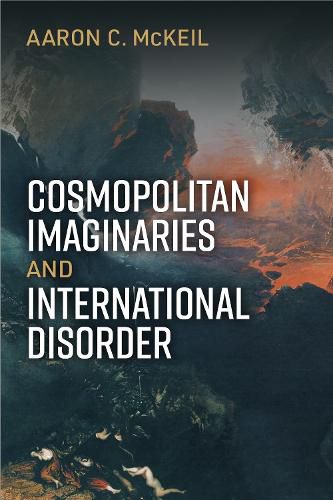Readings Newsletter
Become a Readings Member to make your shopping experience even easier.
Sign in or sign up for free!
You’re not far away from qualifying for FREE standard shipping within Australia
You’ve qualified for FREE standard shipping within Australia
The cart is loading…






While the idea of a cosmopolitan order embracing all humankind is ancient, after the Cold War it was widely believed to be an emerging future. As global interdependence and interaction through new technologies increased, literature of cosmopolitan globalization argued that these changes were setting the stage for a structural transformation of world politics. Yet, a revolt against globalism and increasingly divisive and unstable international order has dramatically contradicted this idea. This presents a puzzle for International Relations theory: Why have attempts to construct cosmopolitan order struggled to emerge in the modern global world?
Cosmopolitan Imaginaries and International Disorder argues that advocacy for cosmopolitan order reform in the modern world has struggled to recognize the political identities of states and populations and to legitimize its proposed political hierarchies. As a result, these efforts have been overwhelmed by states shoring up their power and remobilizing exclusionary nationalist identities, especially when struggles are intensified in contexts of international instability and economic turmoil. In developing a theory to explain these patterns of cosmopolitan politics, this book offers insight into the limits and role of cosmopolitanism in a dividing international order after liberal globalism.
$9.00 standard shipping within Australia
FREE standard shipping within Australia for orders over $100.00
Express & International shipping calculated at checkout
While the idea of a cosmopolitan order embracing all humankind is ancient, after the Cold War it was widely believed to be an emerging future. As global interdependence and interaction through new technologies increased, literature of cosmopolitan globalization argued that these changes were setting the stage for a structural transformation of world politics. Yet, a revolt against globalism and increasingly divisive and unstable international order has dramatically contradicted this idea. This presents a puzzle for International Relations theory: Why have attempts to construct cosmopolitan order struggled to emerge in the modern global world?
Cosmopolitan Imaginaries and International Disorder argues that advocacy for cosmopolitan order reform in the modern world has struggled to recognize the political identities of states and populations and to legitimize its proposed political hierarchies. As a result, these efforts have been overwhelmed by states shoring up their power and remobilizing exclusionary nationalist identities, especially when struggles are intensified in contexts of international instability and economic turmoil. In developing a theory to explain these patterns of cosmopolitan politics, this book offers insight into the limits and role of cosmopolitanism in a dividing international order after liberal globalism.